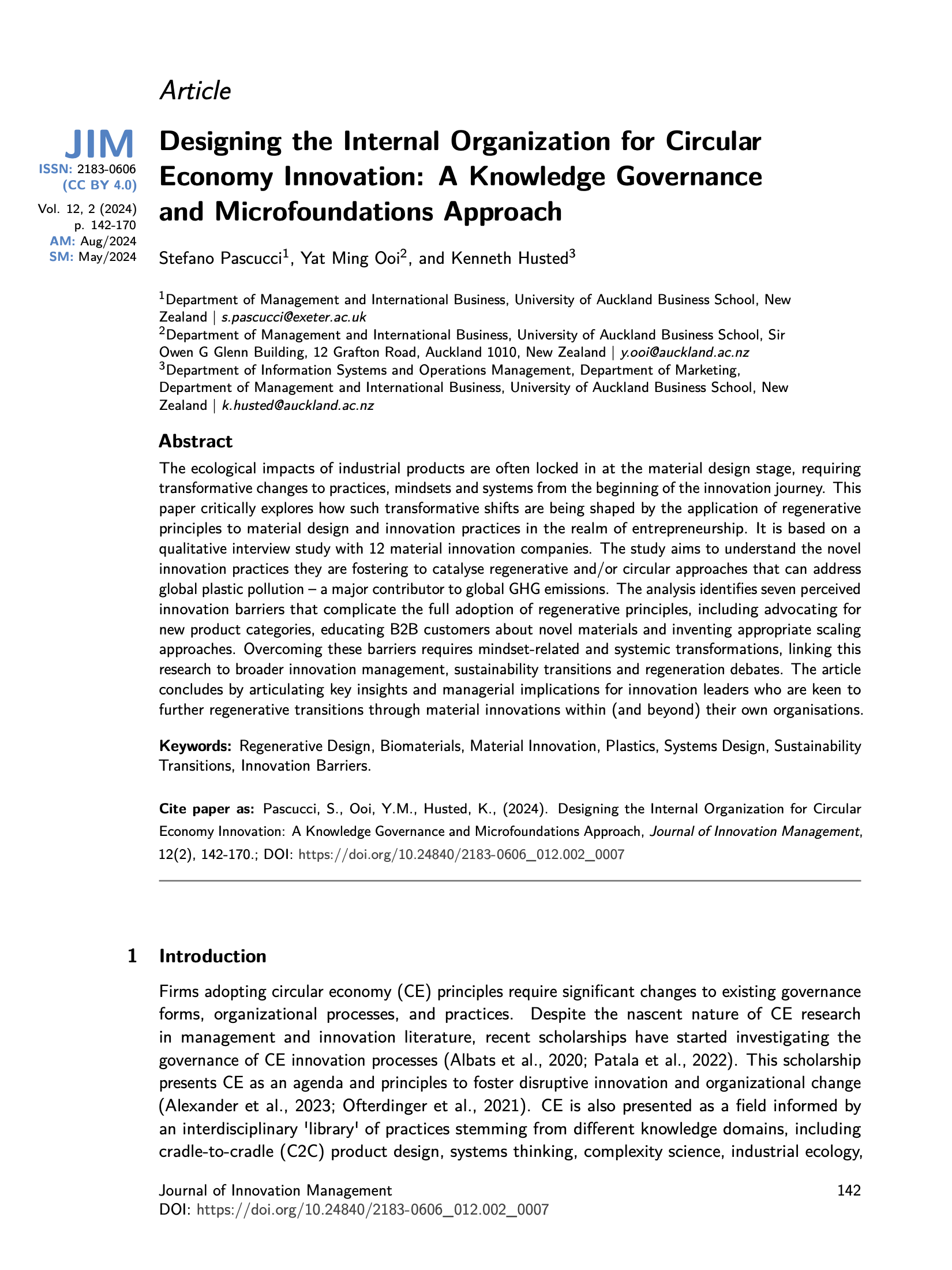Designing the Internal Organization for Circular Economy Innovation: A Knowledge Governance and Microfoundations Approach
Main Article Content
Abstract
Firms implementing circular economy principles in their innovation processes necessitates the redesign of well-established processes and practices. This redesign leverages the various knowledge and practice domains within the firm, at different levels and scales. Despite the importance of knowledge to innovation management, there is a lack of research in innovation studies examining how firms could manage different knowledge flows within the circular economy context. In most research in this area, studies tend to assume that existence of governance mechanisms to manage these knowledge flows. However, given the need for redesigning or introducing entirely new business models to incorporate circularity principles, there is also a need to understand the internal organization that facilitates such changes. In this paper, we conceptualize how organizational mechanisms governing knowledge processes influence firms' adoption of circular-oriented innovation processes. We conclude that firms go through various stages and levels in the adoption process. These levels are linked through situational, action-formation, and transformational mechanisms that govern supportive knowledge processes. We contribute the innovation management literature by linking circular innovation process adoption to knowledge governance and the underlying knowledge processes. Specifically, we highlight the microfoundations nuances of circular-oriented innovation processes adoption that are pertinent to organizing innovation activities within the firm.
Article Details
Authors who publish with this journal agree to the following terms:
- Authors retain copyright and grant the journal right of first publication with the work simultaneously licensed under a Creative Commons Attribution License that allows others to share the work with an acknowledgement of the work's authorship and initial publication in this journal.
- Authors are able to enter into separate, additional contractual arrangements for the non-exclusive distribution of the journal's published version of the work (e.g., post it to an institutional repository or publish it in a book), with an acknowledgement of its initial publication in this journal.
- Authors are permitted and encouraged to post their work online (e.g., in institutional repositories or on their website) prior to and during the submission process, as it can lead to productive exchanges, as well as earlier and greater citation of published work (See The Effect of Open Access).

